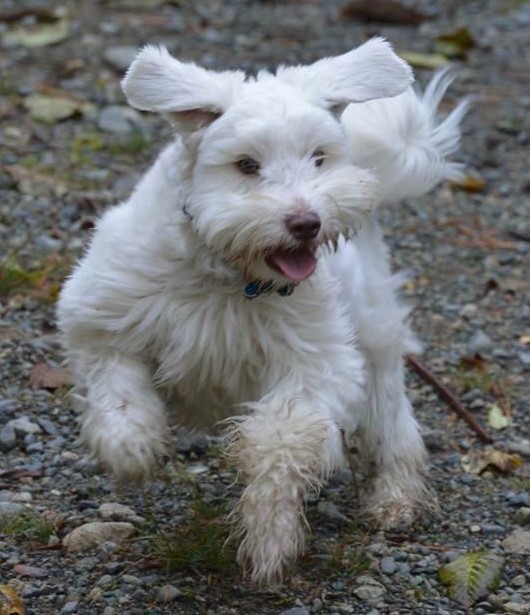by Sherry Scheideman, MA, Registered Clinical Counsellor
and featuring Dr. Karl Brown (my friend Laura’s puppy).
Mindfulness is a simple practice with amazing benefits. It helps with issues ranging from anxiety, depression, anger, stress, physical pain, illness, and disease, to relationships, to academic, career, and sports performance. It promotes relaxation, happiness, competence, and connectedness.

Mindfulness is defined as paying attention non-judgementally to what is happening right now, in the present moment. It sounds simple to pay attention to ordinary things like our own breathing, or the emotion that is rising in our body, or the sensation of water slipping over our hands as we wash. However, if we’re not used to it, it’s actually really hard to do. We might, for example, start to focus on our breath, only to realize ten minutes later that we’ve been thinking about other things the whole time. Or, we might decide to pay attention to the feeling of anger that is rising within us, but then quickly find it so painful or frightening that we look away from it and think about something else.
With practice, though, we get better at being mindful. Practicing mindfulness is like training a puppy to sit and stay.

The puppy gets up and runs off
again

and again.

And again and again, we gently bring the puppy back and resume the exercise. Sit. Stay. Good!

The whole time, we are loving the puppy, giving the puppy treats, and enjoying our time together. We don’t beat the puppy! Similarly, when we notice that our mind has wandered during a mindfulness exercise, we gently bring our attention back. Rather than beating up on ourselves for letting our attention wander, we congratulate ourselves for noticing and coming back. We celebrate this new awareness. Thus we build compassion at the same time as we build mindfulness.
As we develop the ability to sit in non-judgemental awareness of whatever is happening at the moment, we start to live more in our peaceful centre, and to be able to come back to our peaceful centre more and more easily when we’ve wandered or been pulled out of it by powerful thoughts, emotions, or circumstances. We begin to realize that we can handle whatever happens in our life, because we live in our peaceful centre which cannot really be disturbed. In our daily life, we may find that we are calm, observant, and able to choose how to respond even under circumstances in which we would normally have had a complete meltdown.
I’m very grateful for the benefits of mindfulness practice in my own life, and it gives me great satisfaction as a counsellor to help clients develop mindfulness, and to witness the shifts in perspective and circumstances that so often then come about in their lives.
This post was written by Sherry Scheideman, MA, Registered Clinical Counsellor, Victoria BC
Karl’s photos by Laura Honey.